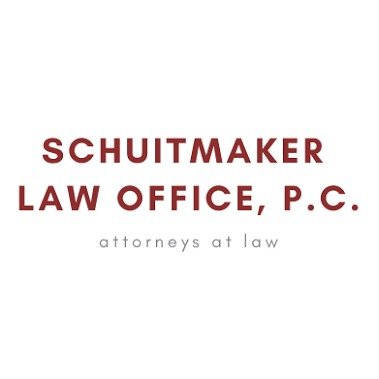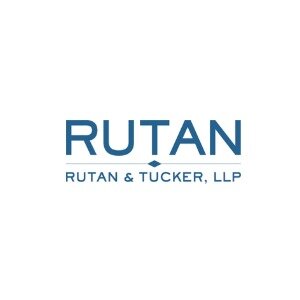Best Conveyancing Lawyers in United States
Share your needs with us, get contacted by law firms.
Free. Takes 2 min.
Free Guide to Hiring a Real Estate Lawyer
Or refine your search by selecting a city:
List of the best lawyers in United States
About Conveyancing Law in United States
Conveyancing in the United States refers to the legal process involved in transferring ownership of real property from one person or entity to another. This process encompasses everything from the preparation and review of documents to the final completion of the transaction. Unlike some countries, there is no nationwide conveyancing law in the United States. Instead, property law is primarily governed by state laws and local regulations. Generally, a conveyancing transaction involves negotiating and drafting contracts, ensuring a clear title, dealing with financial arrangements, and recording the transfer of ownership with local authorities.
Why You May Need a Lawyer
While some straightforward real estate transactions can occur without legal counsel, there are many scenarios where a lawyer's guidance is crucial in conveyancing. You may need a lawyer if you are buying or selling property with complicated ownership histories, if you are dealing with issues like liens or easements, or if you are transacting commercial properties. Legal assistance is also essential in cases of foreclosure, probate sales, disputes between co-owners, or if a party to the transaction is a corporation or trust. Lawyers help ensure all documents comply with local and state laws, protect your interests during negotiations, and can resolve unexpected issues quickly.
Local Laws Overview
Key aspects of local laws affecting conveyancing in the United States include state-specific statutes governing deeds, mortgages, foreclosures, and recording systems. Every state has its own requirements for property disclosures, which may include information about property defects, environmental hazards, or zoning restrictions. States also differ in their title insurance requirements, closing processes, and tax obligations. Some states use judicial foreclosure while others use non-judicial processes for property disputes. Understanding the relevant laws in the local jurisdiction is essential, as failure to comply can delay or even invalidate a property transfer.
Frequently Asked Questions
What is conveyancing in real estate?
Conveyancing is the legal process of transferring property ownership from a seller to a buyer. It ensures all legal aspects are properly handled, the title is clear, and both parties know their rights and obligations.
Do I need a lawyer to buy or sell property?
While not always legally required, having a lawyer is highly recommended to handle the legal paperwork, provide advice, and prevent costly mistakes or disputes during the transaction.
What is a title search?
A title search is an examination of public records to verify the property's legal ownership and identify any claims, liens, or encumbrances that could affect the transaction.
What are closing costs?
Closing costs are the fees and expenses, including legal fees, title insurance, taxes, and recording fees, that both buyers and sellers must pay at the settlement of the conveyancing process.
What is escrow and how does it work?
Escrow is a neutral third party that holds funds and documents on behalf of buyer and seller until all conditions of the agreement are met, ensuring a secure and fair transaction.
What are property disclosures?
Property disclosures are documents provided by the seller revealing known defects or issues with the property, as required by state law. Failure to disclose can lead to legal consequences.
Can conveyancing be handled remotely?
Many parts of the conveyancing process can be completed electronically or remotely, including e-signatures on documents and remote closings, varying by state and local rules.
How long does the conveyancing process take?
The process typically takes several weeks to a few months, depending on factors like property type, the need for mortgage financing, and the complexity of the title search.
What are common issues that can delay conveyancing?
Delays often arise from title defects, liens, financing problems, incomplete documents, inaccurate disclosures, or disagreements between parties.
What happens if problems arise after closing?
If issues are discovered after closing, such as undisclosed defects or title problems, legal remedies may include negotiating settlements, claims against title insurance, or court action if necessary.
Additional Resources
If you need more information or assistance with conveyancing, the following resources may be helpful:
- Your state's Bar Association for lawyer referrals and legal information
- Local real estate boards or commissions for consumer guidelines
- County Recorder or Register of Deeds offices for property records
- United States Department of Housing and Urban Development (HUD) for homebuyer resources
- American Land Title Association for information on title insurance and best practices
Next Steps
If you are considering a property transaction and are unsure about legal requirements, your best next step is to consult with a qualified attorney experienced in real estate and conveyancing law in your state. Start by gathering relevant documents such as the deed, title report, and property disclosures. Reach out to your local or state Bar Association for referrals or check local legal aid organizations if you have limited resources. Engaging with a professional early in the process can help avoid costly delays or legal challenges and ensure a smoother transfer of property ownership.
Lawzana helps you find the best lawyers and law firms in United States through a curated and pre-screened list of qualified legal professionals. Our platform offers rankings and detailed profiles of attorneys and law firms, allowing you to compare based on practice areas, including Conveyancing, experience, and client feedback.
Each profile includes a description of the firm's areas of practice, client reviews, team members and partners, year of establishment, spoken languages, office locations, contact information, social media presence, and any published articles or resources. Most firms on our platform speak English and are experienced in both local and international legal matters.
Get a quote from top-rated law firms in United States — quickly, securely, and without unnecessary hassle.
Disclaimer:
The information provided on this page is for general informational purposes only and does not constitute legal advice. While we strive to ensure the accuracy and relevance of the content, legal information may change over time, and interpretations of the law can vary. You should always consult with a qualified legal professional for advice specific to your situation.
We disclaim all liability for actions taken or not taken based on the content of this page. If you believe any information is incorrect or outdated, please contact us, and we will review and update it where appropriate.
Browse conveyancing law firms by state in United States
Refine your search by selecting a state.















